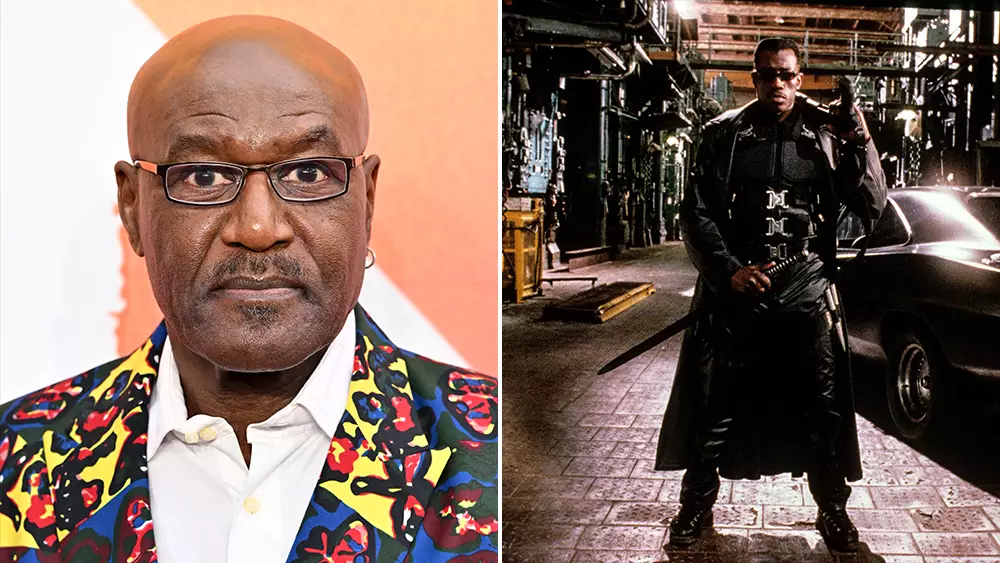Delroy Lindo’s candid remarks regarding the long-awaited Blade reboot reflect a growing frustration within Hollywood. The film, originally set to reintroduce the iconic vampire hunter portrayed by Mahershala Ali, has turned into a tumultuous saga marred by creative disagreements and managerial missteps. Lindo’s recounting of his initial involvement reveals how enthusiasm was palpable among the creators, suggesting that the reboot could have served as a progressive turning point in the franchise.
However, the veil of excitement quickly dissipated as reports of conflicts became more frequent. Lindo’s observations that the project had “just gone off the rails” encapsulate a sentiment shared by many in the entertainment industry; creative visions often clash with the cold realities of corporate structures, leading to aborted projects that burn bright before fizzling out into disappointment. It is particularly painful given that this iteration aimed to embrace inclusion and a fresh narrative that highlighted the rich complexities of Black identity through its characters.
Marvel’s Missed Opportunity for Cultural Impact
The original Blade film, which starred Wesley Snipes, left an indelible mark on the superhero genre, paving the way for many future Black-led cinematic ventures. The reboot, with its chance to further explore Black culture and historical narratives, represented a beacon of hope. Lindo’s character, inspired by the ethos of Marcus Garvey, could have provided a nuanced portrayal, intertwining community-building with the usual thrills of supernatural action. Yet, as each passing month brings news of further delays and exits—most notably that of directors such as Bassam Tariq—the opportunity slips further from Marvel’s grasp.
What is most disheartening is the increasingly apparent disconnect between creators and executives. Top Marvel officials, including Kevin Feige, continue to verbalize commitment to Ali’s portrayal while paradoxically allowing the narrative’s backbone to unravel. This sends a disheartening message: that the voices of talented artists and their innovative ideas can be sidelined in pursuit of profitability and marketability. This reality begs the question: can Marvel reclaim a project that has already lost so much momentum?
Disruptions Beyond the Screen: Strikes and Their Impact
Financial and operational constraints due to the pandemic and industry strikes have undoubtedly complicated matters. However, these challenges are not uncommon, and they should galvanize studios into action, not inaction. Adaptability is crucial in an evolving landscape, yet Marvel’s failure to pivot effectively raises eyebrows. The delays signal a crisis, one that might not only impact box office returns but also the perception of the brand itself.
In an era marked by a heightened call for representation, the stakes have never been higher. Marvel’s vision for Blade is not just about entertainment; it embodies dreams of visibility and acknowledgment for narratives that have long been marginalized. The onus lies on the conglomerate to revitalize this project, aligning corporate interests with the art’s inherent authenticity, lest it become another cautionary tale of what could have been. As Lindo reflects on the initial promise of innovation, one can only hope that a path emerges from this labyrinthine regression.


Leave a Reply